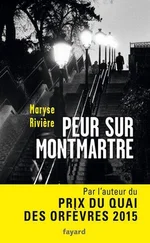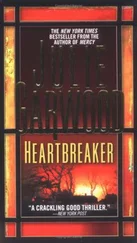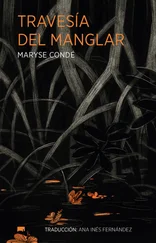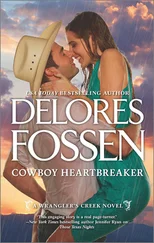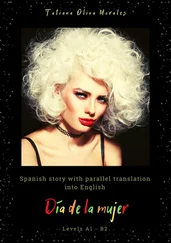It’s a phase, he decided. But I had just begun.
* * *
When he found me in the toolshed, so the story goes, I was covered in black fur. He was already an old man, widowed early, childless; he figured, Finders keepers. He trimmed me with scissors and kept the hair in a box on which he wrote Lucy Fur.
Now when did you hear of a kid having fur? That’s what I call special, he’d say.
He brought the box out sometimes and let me play with it. The hair felt like a cat’s. I could imagine his fingers straying over me, lifting and cutting. When I smelled the box I smelled ashes.
* * *
He had to block the front door when a friend stopped by for a beer or to say hello. I’m sorry , he’d say, but she bites , and I would bark, loud. If you wanted to see him you’d have to find him somewhere I wasn’t. Even the porch was off-limits; when the postman came I jabbed at him through the door slot with a pair of scissors.
But my not-father didn’t complain. He didn’t want to go out. I’ve had enough of drinking and women, he’d say, and turn the television on to his favorite show — the one he’d named me after — while I sat beside him, picking holes in the green velveteen and pulling the stuffing through until the cushion on my side of the couch was empty and I had to sit on the floor.
* * *
When I was five I took a stick and wrote in the sand, I AM THE SON OF THE DEVIL. We were at the beach. I was not crazy about the waves or the seaweed. He was gathering shells and I pointed at the words with my stick and he turned his head to the side to read them.
Okay, he said, shaking scallops in his palm. A, you’re a girl. B, do I look like the devil?
I took the stick again. You , I wrote, and then I drew an equal sign with a slash through it, followed by My dad.
He sighed. You sore about being adopted?
I jabbed the stick into the sand and threw myself down on the picnic blanket, my back to him. I could hear him unwrapping the sandwiches he took from his pockets. My stomach growled.
Come on, he said, reaching around my shoulder with a piece of ham. Even devil spawn has to eat.
I chomped at his fingers. He burped behind me, wiping his hands in the sand.
There was no one else on the beach. It was cold and gray. Still, he swam. He pulled me out into the water. I sank. He pulled me back up. My hair gleamed like black oil around my shoulders and he scooped it up in his hands like treasure.
You are beautiful, he said. I punched him in the arm. He twisted to his knees with a splash, grinning. I wondered sometimes if he was senile. With the water licking his waist he looked up at me.
Someone lost the lottery the day they lost you, but I won it, he said. Which was wrong. Which didn’t even make sense. But he believed it.
* * *
I was expelled from school for putting tacks in the rain boots lined up in the coatroom. He said he never liked that stupid school to begin with. It became my job to fix the rotten wood porch, to pull weeds by the fence, to peel potatoes. I did everything wrong, but he still said Good job, Lucy! whenever I presented him with a handful of torn-up violets or showed him the porch pounded too full of nails or the potatoes hacked to pieces. In the evenings, I waited in the kitchen for bugs to crawl past so I could stomp on them with both feet, thinking Kill kill kill .
Did you get them all? he’d call, and I’d jump in response, making the windows rattle in their loose frames.
Thatta girl, he’d say.
* * *
I was seven, smashing a square block against a round hole in a puzzle he’d made as a Christmas present. I hated Christmas presents. After an hour of smashing he grabbed my arm and yelled Lucy, use the other damn block!
I went rigid; it was the first time he’d yelled at me. The square fell out of my hand. Immediately he knelt beside me, offering the block on his big palm.
I’m sorry I said damn, he said. Go on doing it your own way.
I was still for a moment, then pushed all the pieces into their proper slots as fast as I could. We looked at the puzzle together in silence. Then I shoved it over and went to my room, which was his room, too. I pulled the sheets over my head and breathed out hard to make a tent. He stuck his face in. I slapped it. He sang. I put my hands over my ears. The song was supposed to be funny. Ha was not a sound I could make, just as I could not say hello or please or my name, or any name. I could not tell him he was driving me crazy, and he couldn’t take a hint. So he kept singing.
* * *
When I was ten I started menstruating. How about that, he said when he saw the stain blooming on the crotch of my jeans. You want me to get you some sanitary thingamajigs? he offered, but I insisted on bleeding anywhere and everywhere, like an animal, staining the couch, the carpet, the tile. My skin flared. My chest was always sore and I wore his clothes, T-shirts that came to my knees, pants rolled fat at my ankles and cinched at the waist with rope. I wanted robes, a crown; but it was not my time yet. Instead, I ran through the fields barefoot, my toenails black, my arms out like wings. I waited in trees, savaging the leaves and pinching ants between my fingers; when he passed beneath me I dropped onto his shoulders and he grunted like nothing bigger than a softball had hit him, reaching back to catch my shins. I made a sign asking what was for dinner. Spaghetti, he said, and I thumped the side of his head. Sloppy Joes, he offered, and I hit him again; he chortled and said Okay okay, liver and onions it is. I licked my chops.
* * *
At twelve I was asked to a dance by a boy. I knew by his good looks and sideways eyes that my not-father had put him up to asking me. Instead of going, I burned the old dance hall down to the ground. There were people inside, but they managed to get out more or less intact before the roof fell in. Flames flew from the burst windows as glass flocked the lawn and shrieks dressed the night sky. I was watching from a tree and he pulled me by my foot from the branch, quiet, making sure no one saw me.
Sit down, he said, once we were home and he’d locked the door just in case. I would not sit down. He sighed.
I taught you better than to go fooling with matches. A fire can be real dangerous.
I waved my arms to say, I know!
Someone could get hurt.
I grinned to show I meant it. He rubbed his eye.
Lucy, he said, you don’t have to do none of these bad things.
I nodded that yes, I did, and yes, I would.
No, you don’t. You’re a good girl.
I shook my head until my hair flew. The room spun. He wanted to get hold of me; I crashed away. In a corner he reached for my shoulders. I butted my head into his soft stomach. I pushed and pushed. He held the tops of my arms.
You can’t make me not care for you, he said. So you should go on and quit trying.
I kept pushing. He dipped his head down to mine, his torso curving to protect me instead of himself. We became a shell inside a shell, the insides of us never touching, but the outsides as close as two outsides could be.
You can’t hurt me, he said.
I dug my feet into the floor; I pressed my hands into his chest. I became a bull. Maybe for minutes, maybe for hours. But he was strong, and I was still a girl, coated in weakness like a caul. I fell asleep against his stomach. When I woke up his arms were crossed, heavy, over my back; he was snoring, his cheek on my head. I opened my eyes and my lashes kissed the belly of his T-shirt.
* * *
The next morning he slung a hammock from two posts on the porch. From then on in the bed we’d shared I was alone. I wrestled from one cold end to the other; I took to sleeping on the floor. Dust clung to my hair like dirt in the weave of a broom. He had to haul me up by the elbows in the morning while I made my body into dead weight. At breakfast I insisted on eating my bacon raw, my elbows on the table, my hair pooling in my plate. He let me eat until I threw up, and then he cleaned the mess I made.
Читать дальше

